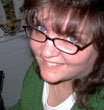hey FFFers - I want to share two YA fantasy novels with you and encourage you to get them and read them.
Bones of Faerie and Faerie Winter by Janni Lee Simner
WOW.
They are post-apocalyptic, but not in the way you would think. They are set after a War between humans and faerie folk. The world building is incredible, the characters are alive, interesting and diverse. The plot is unique and the endings satisfying. I read both without editing in my head and felt frustrated when I had to put them down.
Here is a sample from the beginning of Bones of Faerie:
I had a sister once. She was a beautiful baby, eyes silver as moonlight off the river at night. From the hour of her birth she was long-limbed and graceful, faerie-pale hair clear as glass from Before, so pale you could almost see through to the soft skin beneath.
My father was a sensible man. He set her out on the hillside that very night, though my mother wept and even old Jayce argued against it. "If the faerie folk want her, let them take her," Father said. "If not, the fault's theirs for not claiming one of their own." He left my sister, and he never looked back.
I did. I crept out before dawn to see whether the faeries had really come. They hadn't, but some wild creature had. One glance was all I could take. I turned and ran for home, telling no one where I'd been.
We were lucky that time, I knew. I'd heard tales of a woman who bore a child with a voice high and sweet as a bird's song - and with sharp claws to match. No one questioned that baby's father when he set the child out to die, far from town, far from where his wife lay dying, her insides torn and bleeding.
Magic was never meant for our world, Father said, and of course I'd agreed, though the War had ended and the faerie folk returned to their own places before I was born. If only they'd never stirred from those places - but it was no use thinking that way.
Besides, I'd heard often enough that our town did better than most. We knew the rules. Don't touch any stone that glows with faerie light, or that light will burn you fiercer than any fire. Don't venture out alone into the dark, or the darkness will swallow you whole. And cast out the magic born among you, before it can turn on its parents.
Towns had died for not understanding that much. My father was a sensible man.
But the memory of my sister's bones, cracked and bloody in the moonlight, haunts me still.
Tempted? I bet you are. I hope you'll get these books and read them. What struck me most was the world the author built, so our next topic will be world-building. Be thinking about that until next time!






